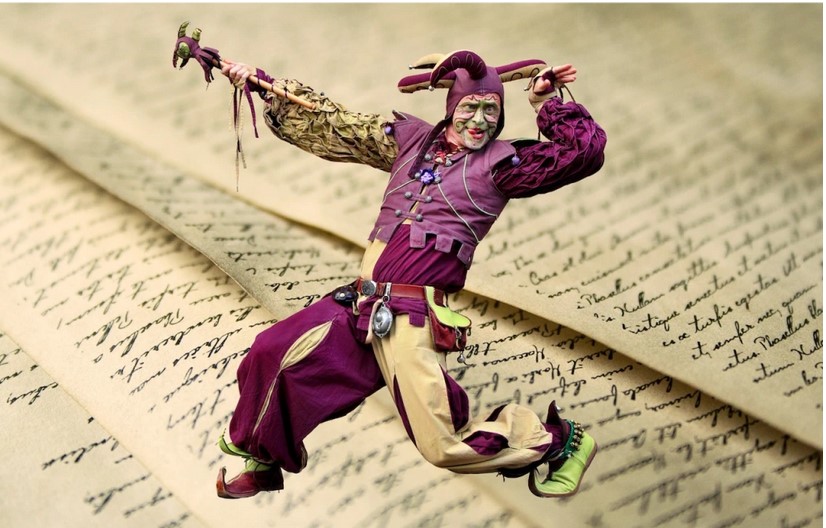Two things always hover up amidst the chaos and anarchy – a strong moral urge, and the idea of deliverance. This moral urge takes no time in the process of generalisation, if it germinates within someone with power. And when this moral urge leading to deliverance finds its support, then it might fork two possibilities. One may be under the intoxication of the newfound power, and the other could be a symbol of benevolence and compassion. But none can provide the assurance for the desired latter. This incertitude has been one of the popular unconquered treasures in human history.
That being said, the inevitable incertitude shoved us to change the path; a new path for a solution. What lies ahead is again two possibilities. First, we can control or regulate the strong moral urge, or second, we can withhold the support. Rationally thinking, we also find the indispensability of both. Technically speaking, the domain of morality and the discourses involved within its history is gargantuan in character. A simple, plain, and stiff morality has the potential to bring down an empire. On the other hand, the compelling force exerted by a popular movement of deliverance, grounded on some morality, is always hard to skip. Objectively, the true intentions of a support are to glorify the ideology, but it takes no time to interpret the same into the notion of power. The history of power and its blindness needs no introduction, or reverberation. More importantly, the resonance of this interpretation had, undoubtedly, brought multiple violences in the human history.
When we speak of regulating someone’s urge on morality, or passion, for instance, then it becomes subjective, and significantly voluntary in character. And to motivate someone to proceed is as boring as hearing a moral advice during adolescence. Therefore, our first option of regulating the strong moral urge is contextually irrelevant in character. The limitations of time and the complexities involved in the process, will naturally motivate us to discard this option. What is left in our hand is the second choice – the support.
The grand passion for a ‘change’ that dwells deep within man, has also become a soft spot for manipulation. But unfortunately, the idea of a ‘support’ is again essentially impossible to persists without the passion for a change. The popular scenario of its occurrence happens in different stages. First, the existence of a moral urge within an individual or a group, second, the proclamation of a possible change. Third, mass/few motivations, and fourth, the support. This process might seem to be a regular democratic process, but to everyone’s astonishment, it also happens with the creation of a tyrant. Tyranny can be momentary, or it can also be permanent within an individual or a group, but tyrants are always created. The character of tyranny is not innate but rather an emergent condition born out of the procedural metabolism. One might argue that things happen, or people kneel, and hence the support, because there was a blade on the neck. But the truth is, however few the number may be, there was always a support to the blade.
Now, the whole responsibility lies with the dynamics of support. And the dynamics of support lies with the rationality of the supporters. This does not imply the public mindset that was always tabled in the functioning of democratic process. Here, the quantity does not matter. A tyrant does not need to procure mass support, but one beside him is sufficient to carry out the plans. However, no doubt, mass support will crown him with invincible powers. That being said, the question is what could be the rationale behind the desired dynamics of support? This question brings us to the square one – the moral urge. Morality do not necessarily belong to the tyrant, or any other leader or group. It is necessarily for every individual. Individual living with certain moral awareness will certainly have a moral code [not a stiff and rigid code, but code supported and sustained by reason], and this code will naturally illumine the individual in most of his decisions. Now, coming to the dynamics of the support, a man aware of his morality, a man who is always enlightened by reason, will always question the generality of someone’s decision spurted out of a particular moral urge. He is not blind to the general will, the general morality. Jean-Jacque Rousseau rightly said that morality is the product of general will, and this ‘will’ is again a manifestation of reason. When that is the case, this individual will retain his/her support as long as the beneficiary’s/protégé’s morality is in conformity with the general will. Hence there is no room for tyranny to rise if such is the case for each and every individual. On the other hand, coming down from this grander version, what can be expected from the supporters is a tiny speck of moral urge, though lesser than the tyrant, will be the evidence for the existence of a glowing conscience, and this, definitely, will always prevent the phenomena of tyranny.
Tyranny or tyrant still persist because there are individuals who are indifferent to morality. They are the beast of burden that brings woes to the humanity. Their blindness has created enough ruckus to the society. This necessitates an initiative to eradicate the senselessness/indifference from such individuals, or simply imbibe them with ‘reason’. They are happy with the line ‘man is an animal’. But I insist, following Aristotle, to add rationality and say, ‘man is a rational animal’.












